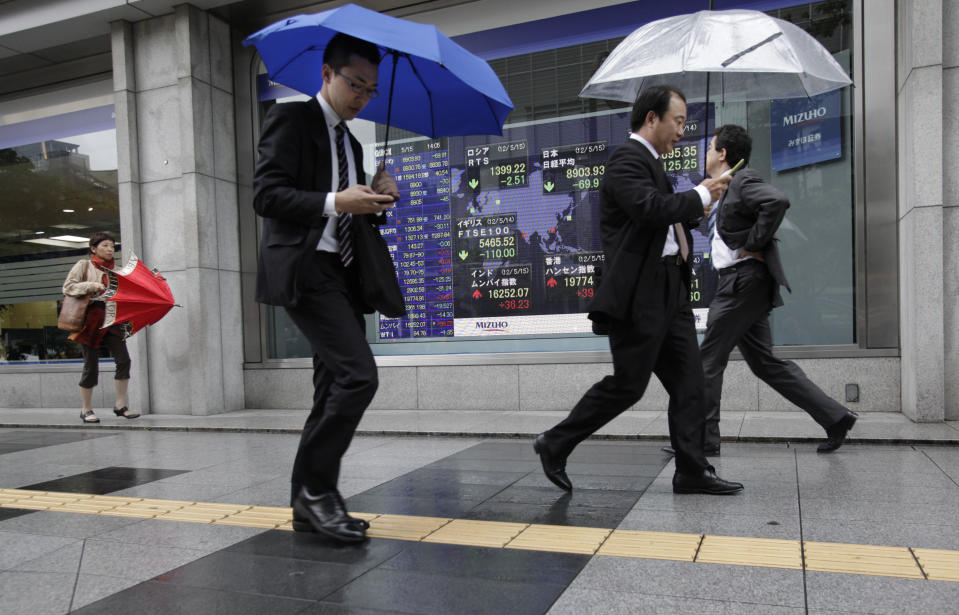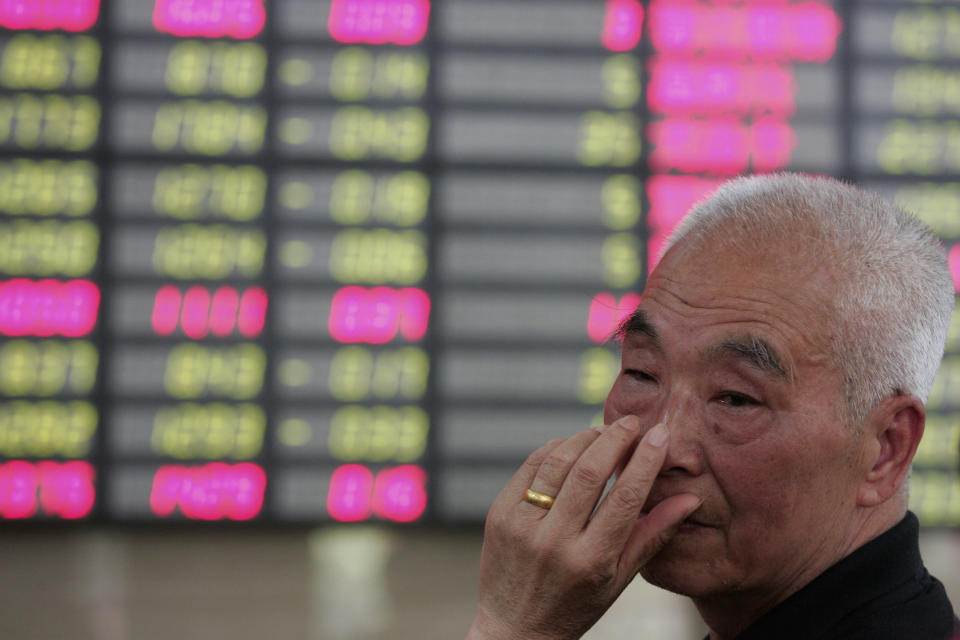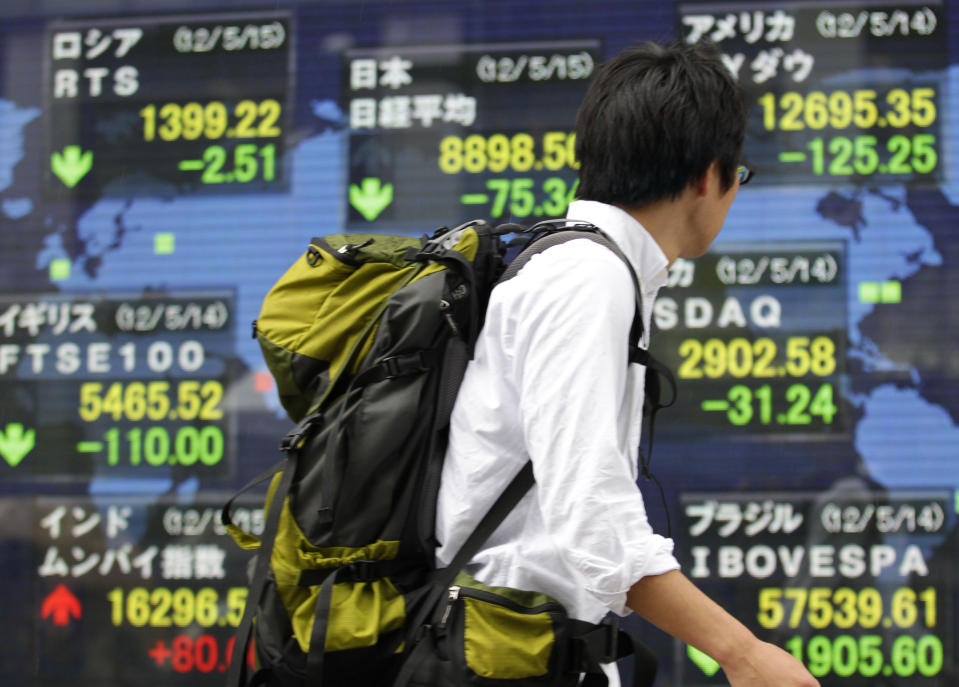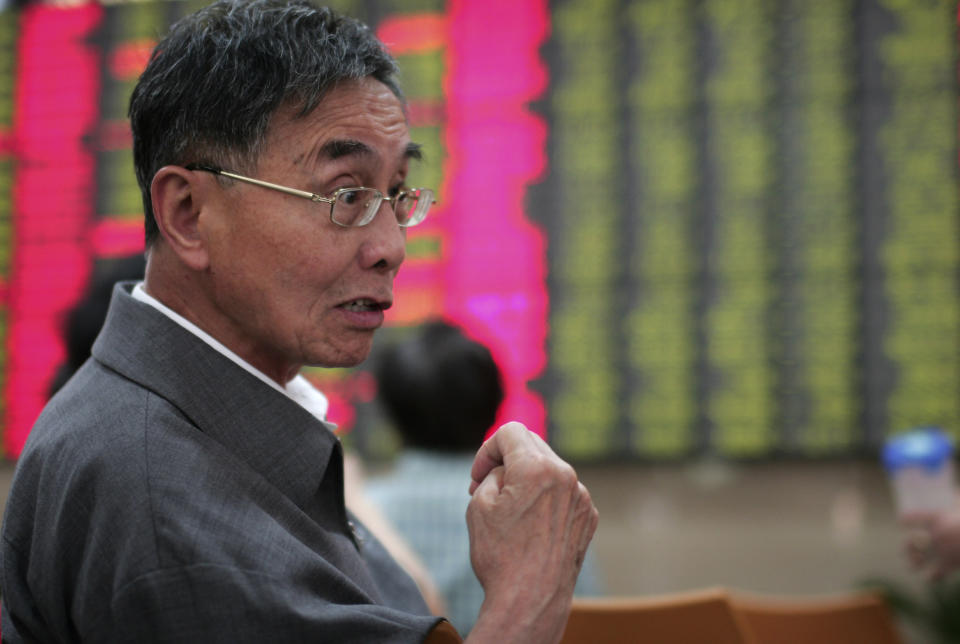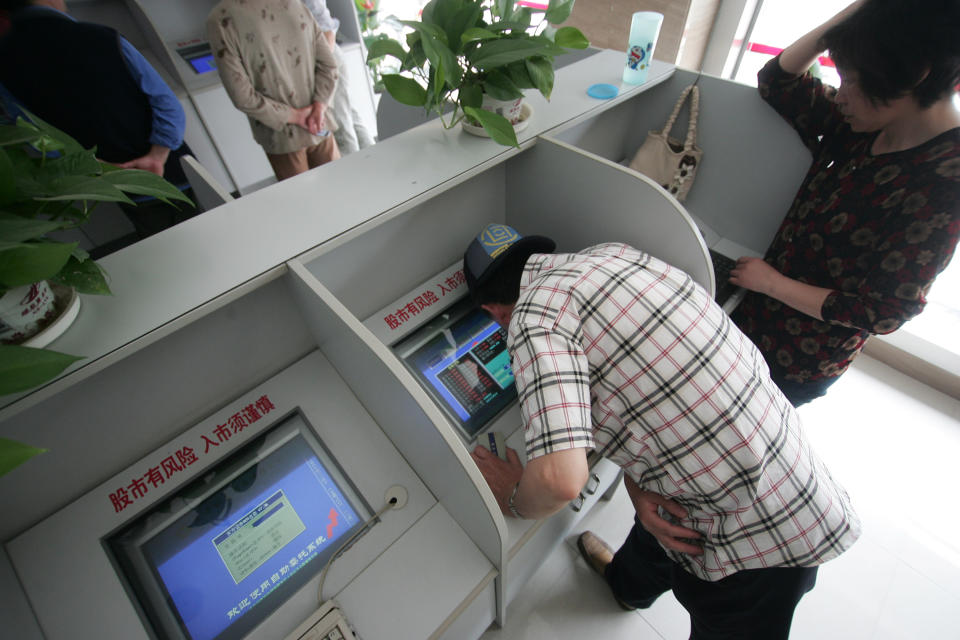Markets recover as eurozone dodges recession
LONDON (AP) — European markets bounced back from early losses on news that the 17-country eurozone has narrowly dodged recession, thanks mainly to strong growth in Germany, though concerns persisted that Greece's political impasse could eventually force it to leave the currency bloc.
Official EU statistics showed the eurozone economy was flat in the first quarter compared with the previous three-month period, better than the 0.2 percent drop that analysts had been expecting. A drop would have put the eurozone technically back into recession, which is defined as two consecutive quarters of economic contraction.
"In the current context, zero growth in the eurozone in the first quarter is relatively good news," said Marie Diron, senior economic adviser at Ernst & Young. "It suggests that the economy is not falling off a cliff under the burden of fiscal austerity."
Growth of 0.5 percent in Germany helped offset recessions in seven countries, including large economies like Spain and Italy. But such imbalances remain a worrying weakness in the eurozone. The most fragile economies are also those that are enacting the most punishing austerity measures to lower debt. The result is a currency union in which countries' economic paths are diverging.
After earlier losses, Britain's FTSE 100 was up 0.2 percent to 5,474 while Germany's DAX was up 0.3 percent at 6,472 and France's CAC-40 added 0.7 percent to 3,080. The euro was up 0.2 percent at $1.2852.
Wall Street was headed for a higher opening, with Dow Jones industrial futures rising 0.6 percent to 12,731 while S&P 500 futures adding 0.6 percent to 1,341.50.
The outlook for the eurozone remains darkened by the political crisis in Greece, where party leaders were struggling for a ninth day to form a coalition government.
No party won an outright majority in the May 6 election, causing an impasse that has raised questions about Greece's ability to stay in the eurozone. Power-sharing efforts have failed so far after the left-wing Syriza party, which came second in the vote, insisted that the draconian terms of Greece's financial rescue agreements be scrapped or rewritten.
More talks will be held Tuesday, but hopes for a deal are low and expectations are increasing that the country will have to hold new elections. With polls showing increasing support for Syriza, analysts expect a showdown between whatever new government comes to power in Greece and the country's bailout rescuers.
"The exit of Greece from the single currency has become probable. Not so long ago it was impossible," analysts at DBS Bank said.
Looking ahead, investors will keep an eye on U.S. economic indicators for inflation, retail sales and surveys on manufacturing due later in the day. The recovery in the world's largest economy has been tentative, with employment gains uneven, though corporate earnings have been mostly upbeat. Investors will be searching for signs of strength that might offset the turmoil in Europe and weakening growth in Asia, particularly China.
Asian markets fell earlier on Tuesday, with Japan's Nikkei 225 down 0.8 percent to 8,900.74, its lowest close since Feb. 3. South Korea's Kospi lost 0.8 percent to 1,898.96. Australia's S&P/ASX 200 lost 0.7 percent to 4,266.30.
Mainland Chinese shares extended their losses, with the Shanghai Composite Index hitting another three-month low, losing 0.2 percent to 2,374.90. But Hong Kong's Hang Seng, which some analysts said was oversold after more than a week of losses, rebounded 0.8 percent to 19,894.31.
Benchmark oil for June delivery was up 2 cents to $94.80 a barrel in electronic trading on the New York Mercantile Exchange. The contract fell $1.35 to settle at $94.78 in New York on Friday.
In currencies, the dollar rose to 79.92 yen from 79.86 yen late Monday in New York.
___
Pamela Sampson in Bangkok contributed to this report.

